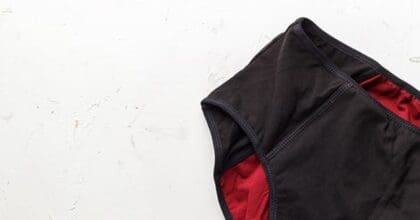Ethical clothes sales go from rags to riches
Once associated with being frumpy and boring, latest research from Mintel finds sales of ethical clothing have more than quadrupled in the last five years to reach £175 million in 2009 as British consumers step out in style with a clear conscience.
The market for ethical clothing is going from strength to strength, as consumers continue to seek out clothing that takes into consideration the impact of production and trade on the environment and on the people behind the clothes we wear.
In recent years there has been an emergence of many more independents supplying the ethical clothing market from both the UK and abroad. To this, is added growing participation from high street retailers and supermarkets. Fast – growing provision of genuinely fashionable and stylish ranges that show how ethical can mean looking good as well as feeling responsible is driving sales.
“Growth in ethical clothing is being driven by consumer demand for fairly produced and sustainable goods, which is being met by growing numbers of fashion-led independents, and now some high street majors. The participation of mainstream retailers is vital to extending awareness and availability and significant numbers of mainstream retailers now include organic and fair trade products in their ranges” comments Katrin Magnussen, Senior Retail Analyst.
” cotton (or bamboo) knit T-shirts and other casual wear formed the basis of the ethical clothing market from its early days, and they are still important. But times have changed and there is now ethical clothing of every type being designed, from lingerie to eveningwear and including genuine high fashion and glamour. Real choice in styling and quality and truly fashionable design have been vital in the market’s development” adds Katrin.
Although having gained significant ground in the past 5 years, the market for ethical clothes is just a little larger than the UK market for bridalwear, but unlike the bridalwear market, the potential for ethical clothing is endless. Despite doing well, not everyone has been hit by the ethical bug, according to exclusive consumer research, around a third (35%) of Brits have no interest in ethical clothing. Price is seen as a barrier by some otherwise willing buyers, with almost a quarter (23%) of Brits saying they would buy it if they could afford to. A fifth of Brits (20%) complain about lack of availability and one in ten (11%) has doubts over the veracity of labelling.
” ethical fashion is not currently top of mind when consumers are actually buying clothes, but research suggests there is a considerable well of goodwill waiting to be tapped by the right combination of factors”says Katrin.
Future growth prospects look bright for the market with great potential unfurling as ethical consumerism continues in the ascendancy, embracing clothing and many other products and services. Adverse economic conditions are likely to have only muted effects on the ethical clothing sector. Existing buyers are tied by emotional attachment to ethical practices, while more exciting ranges and improved availability are further stimulating sales. This will increasingly attract new buyers.
-
Mintel StoreGet smart fast with our exclusive market research reports, delivering the latest data, innovation, trends and strategic recommendations....View reports
-
Mintel LeapMintel Leap is a revolutionary new AI-powered platform that will transform your research process....Book a demo
































